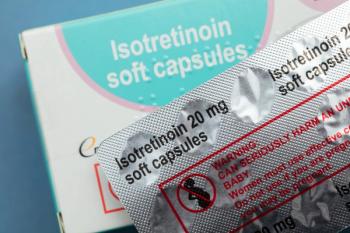
Independent Pharmacist Testifies on Enhancing Pharmaceutical Supply Chain Safety
PRESS RELEASE
Alexandria, Va. April 25, 2013 - Tim Davis, RPh, owner of Beaver Health Mart Pharmacy in Beaver, Pa.,
With legislation having recently been introduced in both the House and Senate, Davis' remarks focused on the need for more uniform standards; expressed concerns about potentially burdensome legislative requirements on small business community pharmacies; and highlighted how pharmacies are already addressing the problem.
"It is my belief that the United States pharmaceutical supply chain is largely safe and secure," said Davis. "Most practicing pharmacists today have a heightened awareness of the possibility of counterfeit or diverted drugs and therefore recognize the critical importance of purchasing medications only from trusted trading partners or wholesalers."
Davis' comments also addressed the following points:
- With over half the states passing drug pedigree laws, the patchwork nature of how the supply chain is regulated creates uncertainty and possible vulnerabilities;
- Discussions about tracking prescription drugs at the individual unit level is worrisome, because "at the present time, the technologies that would be required to implement such a system are not fully developed and have not been designed or scaled to be feasible or affordable for use in individual community pharmacies";
- California's law requiring manufacturers to track-and-trace drug products throughout the supply chain at the individual level, while well-intentioned, would represent a huge burden that pharmacies would struggle mightily to comply;
- A common-sense federal approach that balances the need for enhanced patient safety and minimizing unreasonable burdens on supply chain stakeholders would be welcome; and
- As a member of the Pharmaceutical Distribution Security Alliance (PDSA), a working group comprised of representatives of all sectors of the pharmaceutical supply chain, NCPA agrees that establishing national requirements for wholesaler licensure standards and attaching a unique identifier to prescription drugs at the unit and case levels would make the supply chain more secure.
"Community pharmacists take seriously our role in ensuring the safety of medications that we personally dispense to our patients and remain committed to working with our colleagues in the supply chain as well as with state and federal authorities to make any needed improvements," said Davis. "Moving forward, it is essential that all stakeholders make a concerted effort to keep the lines of communication open so that consumers can continue to trust the integrity of the medications that they depend on."
Newsletter
Stay informed on drug updates, treatment guidelines, and pharmacy practice trends—subscribe to Pharmacy Times for weekly clinical insights.







































